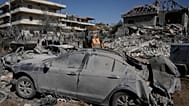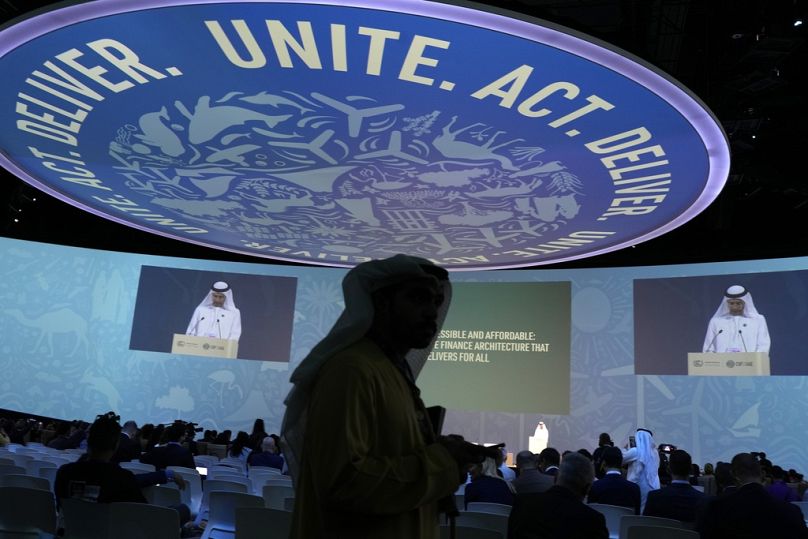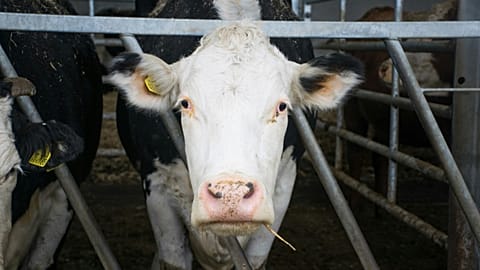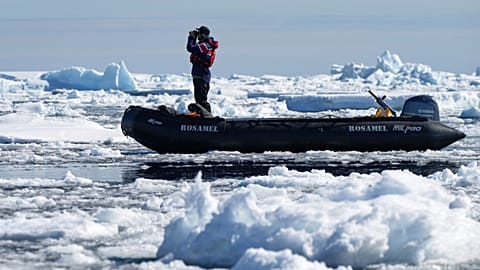Climate action is, and will, stand as a priority for our work in Europe and Central Asia now and in the years to come, through united action for better health, WHO Europe's Hans Henri P. Kluge writes.
The climate crisis is a health crisis and the call to protect the health of current and future generations is an urgent one.
 ADVERTISEMENT
ADVERTISEMENT
 ADVERTISEMENT
ADVERTISEMENT
This summer, for the first time in the WHO European Region, we declared the climate crisis and its consequences a health emergency. We are witnessing an escalation of heatwaves, floods, droughts and wildfires, all taking a heavy toll on the health of our people.
Each year new and disastrous climate records are set. Over past decades the number of extreme weather events has increased by a factor of five in the WHO European Region, which covers 53 member states across Europe and Central Asia.
Last year alone, 62,000 deaths were attributable to heatwaves in 35 countries in the Region.
The representation from governments of the countries of the WHO European Region at COP28 this year is a testament to our joint concern and ambition for climate action to protect health.
Never have there been so many ministers with responsibility for health from our region present at COP where the first-ever Climate-Health Ministerial has just been held.
Robust policies, strong partnerships and cross-regional collaboration
There are three strategic priorities that we must take forward.
First, we need genuinely robust policies and political commitments as the foundation for urgent action.
The Budapest Declaration adopted at the Seventh Ministerial Conference on Environment and Health in July this year is a powerful example.
It prioritises urgent, multisectoral action on health challenges related to the triple crisis of climate change, environmental pollution and biodiversity loss – and calls for strengthening prevention, response and resilience.
Second, we need to foster ever-stronger partnerships to drive change and action in countries.
COP28 in Dubai has provided an unrivalled opportunity to bring together ministers whose remit covers health alongside those more focussed on climate, development and finance to jointly scale up climate and health action.
In Budapest, we launched the Partnership for Health Sector Climate Action, led by Ireland, to build a regional community of practice, sharing experience and research for climate-resilient, low-carbon health systems.
Cross-regional collaboration is also essential. We are spearheading a new transatlantic initiative for high-level climate and health policy dialogues to mobilise faster and more effective action, working in partnership between the WHO regions of Europe and the Americas.
Amongst all of this, we must also listen to the young, those whose future will be most affected by the actions of today.
The voices, concerns and ambitions of young people must be heard. The Partnership on Youth, together with WHO/Europe’s Youth4Health initiative, are advancing youth engagement in our work and decision-making processes.
We can, must and will do this together
Finally, we need strong country action and leadership to address the climate threat.
Creating climate-resilient communities requires robust health systems that continue to deliver quality care in an unstable, changing climate.
At the same time, we need to cut emissions in all policies: on health, energy, water, food, urban development, housing and transport. Greenhouse gases and air pollution often come hand-in-hand, so mitigation measures can also produce major health co-benefits through reduced air pollution.
The growing threat of AMR (antimicrobial resistance) is inextricably linked to climate change — the climate crisis is increasing the spread of infectious diseases and drug-resistant infections.
At the WHO Regional Office for Europe, my colleagues and I are taking unprecedented steps to mainstream climate across all policy domains.
I am fully committed to this agenda, and proud to repeat the pledge I made to the WHO Regional Committee for Europe this year: that climate action is, and will, stand as a priority for our work in Europe and Central Asia now and in the years to come, through united action for better health. We can, must and will do this together.
Dr Hans Henri P. Kluge is the World Health Organisation's Regional Director for Europe.
At Euronews, we believe all views matter. Contact us at view@euronews.com to send pitches or submissions and be part of the conversation.



















